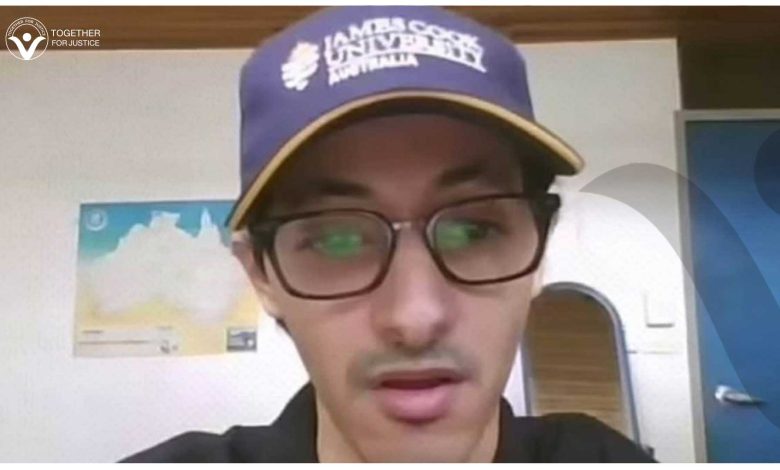28 Months of Enforced Disappearance: Where is Mohammed Al-Shalwi?

It has been over 28 months since the enforced disappearance of Saudi geology graduate Mohammed Matar Al-Shalwi, who vanished shortly after returning to Saudi Arabia in April 2023. To this day, Saudi authorities have refused to disclose his whereabouts, legal status, or any official charges, effectively committing a continuous act of enforced disappearance—a grave violation under both domestic and international law.
Al-Shalwi, a graduate of James Cook University in Townsville, Australia, had lived there since 2019. Before boarding his return flight to Saudi Arabia, he recorded a video expressing fears that he would be arrested due to private political conversations and the detention of his brother. He instructed that the video be published only if he disappeared. It was indeed published shortly after his return—confirming his worst fears.
The Saudi government’s refusal to acknowledge his detention or allow family contact violates Article 114 of the Saudi Criminal Procedure Law, which guarantees detainees the right to legal representation and family communication. Furthermore, it stands in stark violation of international norms, including the UN Convention for the Protection of All Persons from Enforced Disappearance, the Nelson Mandela Rules, and fair trial standards under international human rights law.
Al-Shalwi’s case was even highlighted in the 2023 U.S. State Department Human Rights Report as a severe example of Saudi Arabia’s abuse of freedom of expression and due process violations.
We at Together for Justice urgently call on the Saudi authorities to immediately disclose Mohammed’s whereabouts, ensure his safety, and either release him unconditionally or charge him with a recognizable offense and bring him before a fair and independent court.
We also urge the UN Working Group on Enforced or Involuntary Disappearances and other international human rights mechanisms to take immediate action to investigate and end this case.
Mohammed’s disappearance is not just a personal tragedy — it is a legal, moral, and humanitarian outrage. We will not stop reminding the world of his suffering, because justice demands persistence.




